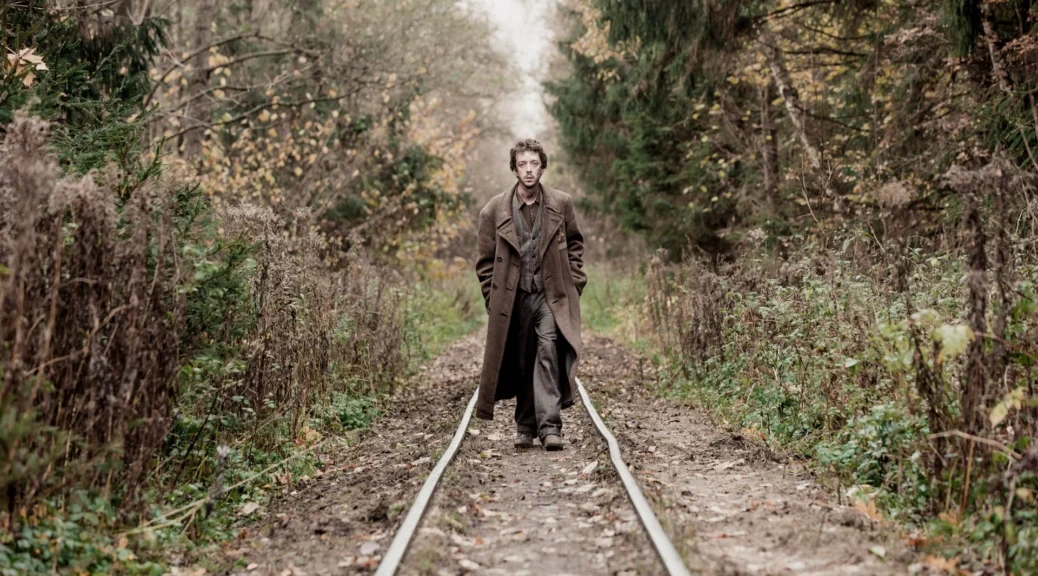Persian Lessons
by Rachel Willis
A random trade in the back of a transport van gives Gilles (Nahuel Peréz Biscayart) a chance to survive the Holocaust in Vadim Perelman’s film, Persian Lessons.
The trade – a book in Farsi for a sandwich – seems inconsequential, even poor, but it prevents Gilles’s death when the van is unloaded in a field and everyone is executed. There’s a deputy commandant, Klaus Koch (Lars Eidinger), looking for someone who speaks Farsi, so Gilles is spared – the book used as evidence of his nationality.
The problem is that Gilles is not Persian (Iranian) and doesn’t speak Farsi.
The situation creates immense tension as there are several soldiers who suspect Gilles (known to the soldiers as Reza) is lying. One makes it his goal to reveal the deception. As Gilles tries to create a language to fool Koch, we watch as he struggles to remember the words he’s invented. He keeps them straight using a pneumonic device based on the names of the prisoners entered into a register.
Because of Gilles’s peculiar status, he spends almost equal time with his fellow prisoners and the Nazis around them, but he is a part of neither group. And because of his unique access to Koch, and the fury this incites in some of the soldiers, we spend more time with these men and women than we do the prisoners around Gilles.
We watch as soldiers and officers flirt and gossip and attend parties, humanizing them in a way that makes them more sinister. These are the actions of people you might know – those who view what they do with enthusiasm or indifference. They form relationships with each other while dehumanizing the Jewish people around them. It adds an ominous realism to these characters.
Koch is the most disturbing. He helps Gilles on several occasions, but it’s clear if he were to ever find out Gilles is lying about his identity, the retribution would be swift and cruel. There is no real affection between the two; Gilles is fully aware of his precarious situation, even as he takes advantage of it. Koch is a means for Gilles’s survival, but never a friend.
As the film progresses, there is a constant tension. As prisoners are transferred from one camp to another, Gilles is physically spared, but the emotional toll of watching so many men, women, and children shipped to their death wears on him. His physical and emotional demeanor deteriorates throughout the film.
Perelman’s striking and terrifying portrayal of one man’s experience is one that will resonate for some time.


